Introductory Note :
This article was originally written by user Rocket Brown on Reddit, (also check his blog and his merch) under the name “Black History in Japanese City Pop” and he gave us his kind permission to reproduce it on this blog. We made small updates and hope everyone will enjoy it ! Don’t hesitate if you want to submit content to our blog !
I remember I was introducing one of my friends to Japanese City Pop, so I sent them a link to my YouTube channel in hopes that they will discover some new music they like. I was hoping that his 1st impression would be a positive one, however he left an interesting comment about how these Japanese artists were just stealing American, and by extension, Black music, and ended up having a conversation about it. I wasn’t upset that he felt that way at first, since appropriation is is a real issue in music, one saying that we have in the black community is “They want our rhythm, but not our blues”, and there is a lot of truth in that. However one thing that I’ve had the privilege to learn is that a lot of black musicians played a huge part in the evolution of popular music in Japan. This article serves as a way to archive as much of that cultural exchange as possible.
1973 – The Isley Brothers
3+3 by The Isley Bros (1973)
The Isley Bros. are an American R&B/soul group from Cincinnati, Ohio, established in the early 1950s, led by O’Kelly Isley. In 1973 they released their eleventh album entitled 3+3 for the Epic label in August 7, 1973. Well, it just so happened that Tatsurō Yamashita’s 1st band, Sugar Babe, was established that same year around the same time this album was released. In fact, Sugar Babe’s, only single, “Down Town”, was composed as an homage to one of the hit songs from 3+3, entitled “If You Were There”, blending the Isley Bros. signature R&B sound with the folk rock sound Japanese audiences were accustomed to at the time.
While The Isley Bros didn’t have direct involvement with the creation of Sugar Babe’s song, this serves as an important testament to the influence Afro-American artists had on City Pop, especially considering Tatsurō Yamashita himself admits to being a big fan of the Isleys and would go on to replicate their hard funk sound in later songs, such as “Bomber” & “Silent Screamer”.
1977 – Linda Carriere
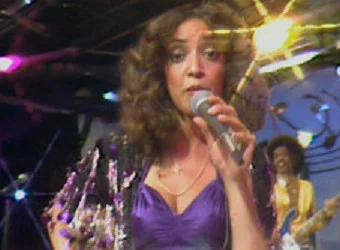
Linda Carriere (~1977)
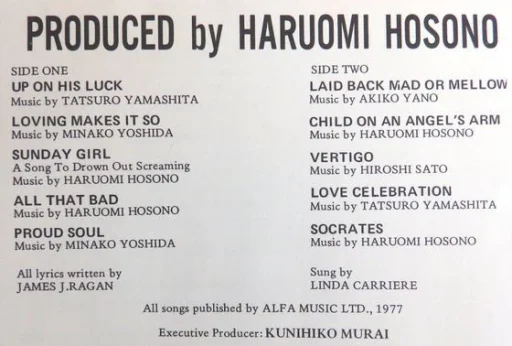
This is more of a case where Japanese artists influence black music, and what better artist other than the legend himself, Tatsurō Yamashita, as he was hired to compose songs for African American songstress Linda Carriere, who at the time was part of the disco group Dynasty.
Tatsurō Yamashita composed two songs for Linda’s debut solo album, the intro song “Up On His Luck”, and “Love Celebration”. While there was a Test Pressing released, the final album was never completed, which led Yamashita to do his own version of “Love Celebration” on his own album, Go Ahead! in 1978.
Addition : Kimiko Kasai has her own version of “Love Celebration” too
1979 – Kimiko Kasai & Herbie Handcock
Kimiko Kasai with Herbie Hancock – Butterfly (1979)
When people think of Herbie Handcock, people usually think of the 1980’s electronic hit “Rockit”, however prior to that he was a successful jazz musician. One album took him to Japan to work with chanteuse Kimiko Kasai’s (笠井紀美子), to create the 1979 album, Butterfly.
The album features a number of cover versions including renditions of Stevie Wonder’s “As” and a collection of Hancock originals including “I Thought It Was You”, “Tell Me A Bedtime Story” and the title track “Butterfly”.
1979 – Ebonee Webb
Ebonee Webb – “Disco Otomisan” (1978)
Ebonee Webb was a Memphis funk band lead by vocalist Michael Winston and guitarist Thomas Brown. While they made very decent funk and soul songs in the early ’80s, they had a very strange debut in the late ‘70s. For whatever reason, these seven musicians from Memphis, Tennessee, went all the way to Japan to record, as it’s promoted on the album cover “ the most engaging debut album”, called Disco Otomisan, a strange compilation of disco songs composed to the melodies of Min’yō ( traditional Japanese folk music).
The album was released in Japan in 1978, and another sequel album, Memphis Soul Meets Japanese Folk Songs, was released in 1979.
Ebonee Webb – “Memphis Soul Meets Japanese Folk Songs” (1979)
1980 – Yellow Magic Orchestra on Soul Train
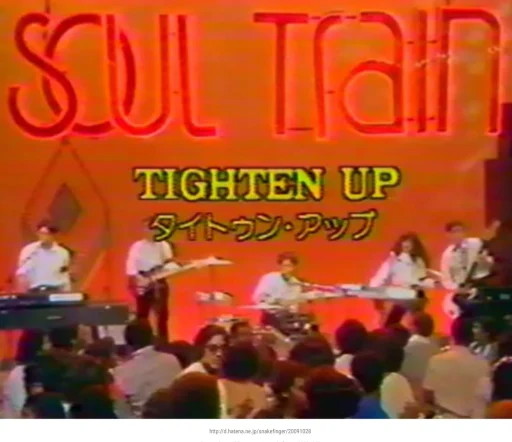
YMO in TV-Show “Soul Train” – Ryuichi Sakamoto on the left (1980)
In the ‘80s, Harry Hosono’s pioneering electronic group Yellow Magic Orchestra (YMO) were established as the hottest pop group in Japan, but the notoriety didn’t end in their home country.
Originally airing on November 29th, 1980, the YMO was featured on Soul Train. This helped established their international presence as not only the 1st non-black group to perform on the show, but also as the 1st & only Japanese band to perform as well. Playing to an enthusiastic crowd (including their manager dressed as a stereotypical Japanese tourist), YMO opened with their suitable rendition of Archie Bell & the Drells’ classic 1968 R&B funk track “Tighten Up” followed by an awkward but hilarious interview with Don Cornelius himself, and ending with their own hit single, “Firecracker.”
1982 – Tom Tom 84 : Thomas Washington
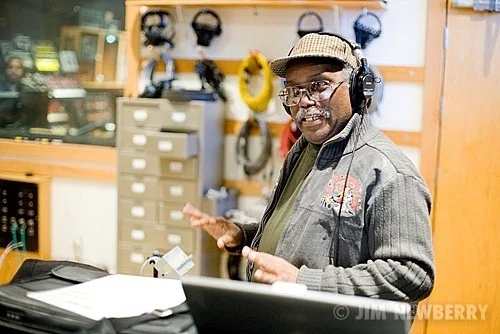
Thomas “Tom Tom” Washington
Often credited as Tom Tom 84, Thomas Washingtion is an American pianist, arranger and producer, born: 1944 in Chicago, Illinois. Tom began his career training under the late James Mack while working at Brunswick Records, and since then has been producing some of the world’s most iconic artists since 1970, from the Chi-Lites, to Earth Wind & Fire, to Phil Collins.
However his work isn’t excluded to the US, as he’s produced music with a number of Japanese musicians as well. His earliest known work in Japan was producing Toshiki Kadomatsu’s ( 角松敏生 ) 2nd album, Weekend Fly To The Sun in 1982, alongside member of Earth Wind & Fire. He’s also arranged music for singer Junko Ohashi ( 大橋純子) on her 1982 album, Postcard Fantasy, as well as pop idol Meiko Nakahara (中原めいこ), for her 1985 single Gemini (ジェミニ).
1984 – Stevie Wonder & Cindy
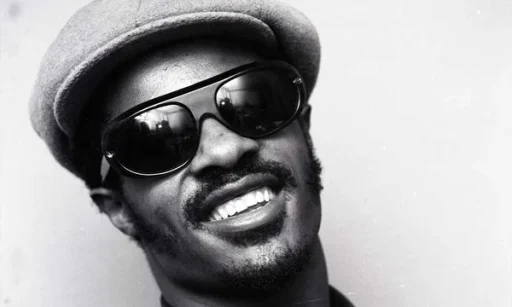
Stevie Wonder
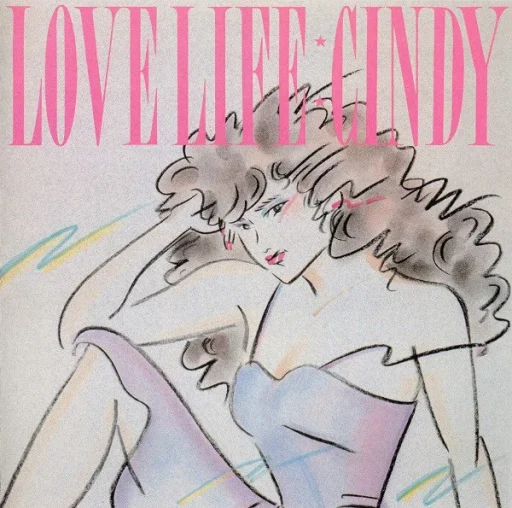
Cindy “Love Life” album (1986)
Back on the subject of Stevie Wonder, the 8th wonder of the world himself actually produced a City Pop album, Love Life, in 1986, for Japanese R&B singer-songwriter Mayumi Yamamoto (山本真裕美), also known as Cindy.
1984 – Chocolate Lips
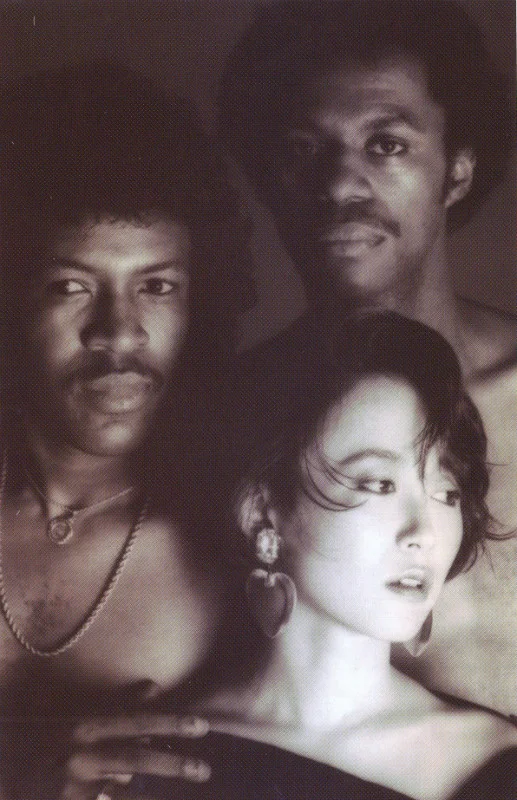
Chocolate Lips with singer Miho Fujiwara, Jimmy Weaver (Left), James Norwood (Right) (~1984)
Prior to her involvement in anime California Crisis, vocalist and keyboardist Miho Fujiwara (藤原美穂) had been doing her fair share of backing vocal work for some more famous singers. That was when saxophonist & producer Jimmy L. Weaver came to Japan and had a chance to listen to her at some live house.
A conversation ensued and voila, Chocolate Lips was born, along with bassist James Norwood. They released their 1st and only self entitled disco album, Chocolate Lips in 1984. While they did not work on the full album, Jimmie & James also performed the song “Streets Are Hot” in the soundtrack for California Crisis, credited as “Jimmie & Michael” on the album.
Addition : Jimmy Weaver can also be seen in Junko Yagami Surprise live
1984 – Yogi Horton & Toshiki Kadomatsu
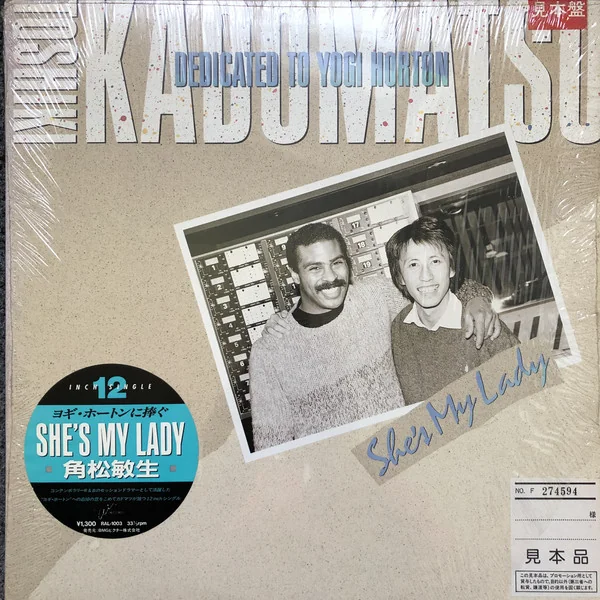
Yogi Horton and Toshiki Kadomatsu – She’s My Lady (1987)
Lawrence “Yogi” Horton was one of the best session R&B drummers of the ’80s, recording with everybody from Diana Ross to Luther Vandross. He also happened to be good friends with Japan’s very own Toshiki Kadomatsu, who had Yogi as a session drummer in his own music, including Toshiki’s 1984 single “Girl In The Box”, the 1985 album Gold Digger, the 1985 hit single, Hatsu Koi (First Love).
Unfortunately Yogi Horton suffered from manic depression and tragically took his own life on June 8, 1987 when he jumped to his death from a 17-floor hotel window in New York shortly after performing in a Luther Vandross concert. In response, Toshiki Kadomatsu released the 1987 single, She’s My Lady, in dedication to his life.
1988 – Joey McCoy with Omega Tribe
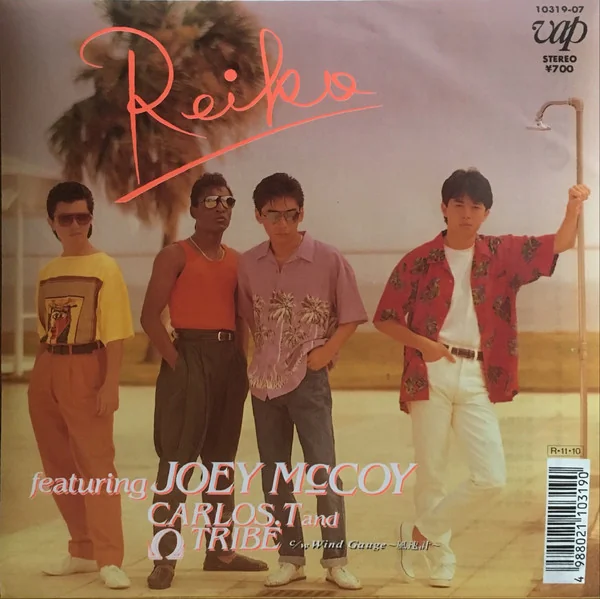
Joey McCoy with Omega Tribe (1988)
If your a hardcore Omega Tribe fan you’re either a fan of Kiyotaka Sugiyama ( 杉山清貴 ), or the 1986 line up with Carlos Toshiki. However the unsung hero nobody talks about is Joey McCoy, who came on board the band, provided the lead vocals for various songs.
Most notably Omega Tribe’s 1988 hit single, “Reiko”, which he sang perfectly in both English & Japanese. Prior to joining the band, Joey had released a Japanese single in 1987 called “If You Say Yes”.
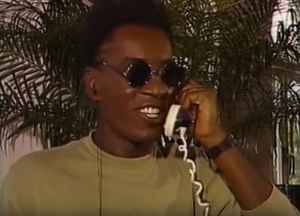
“Hello ?” (Carlos Toshiki & Omega Tribe Sketch)
He eventually got his own album called Summertime Memories in 1992 which features English covers of various Omega Tribe singles.
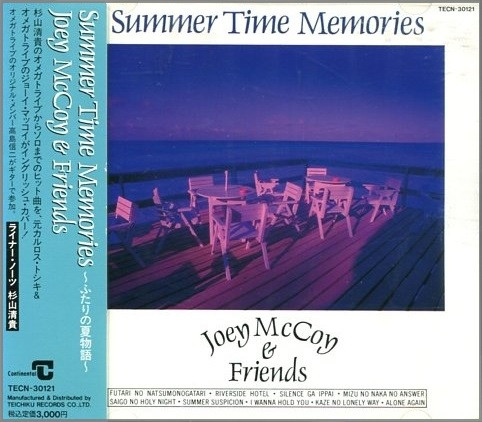
He’s also worked with other J-Pop acts, as a guitarist Momoko Kikuchi’s short lived band, RaMu, and as a backup vocalist & songwriter for ANRI. Joey as also collaborated with official video game company Konami’s official band, Konami Kukeiha Club, on the official release with their Castlevania themed album, Perfect Selection Dracula, where McCoy provided rap vocals (and extremely goofy ones at that) for various Castlevania song remixes.
1989 – Ray Parker Jr
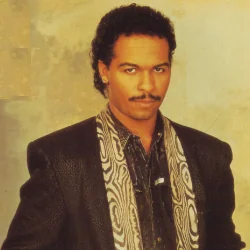
Ray Parker Jr
Most people recognize Ray Parker Jr. for composing the theme song for the Ghostbusters franchise, however he’s had a very prolific career as a session artist and songwriter for various artists, including overseas.
Ray’s earliest involvement with Japanese music that I found was for J-Rock duo Yosui Inoue (井上陽水) & Anzen Chitai(安全地帯) 1974 single “Yudachi” (Evening Squall), as a guitarist. Ray has also written & composed music for various City Pop artists including EPO’s 1982 single “Girl in Me”, and R&B singer Masayuki “Martin” Suzuki(鈴木雅之), his debut 1986 hit singles “Our Love is Special”, & “Love Overtime”.
1992 – Isaac Hayes
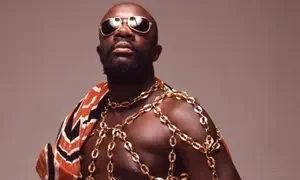
Isaac Hayes
Masayuki Suzuki actually received a lot of help from established black artists that helped shape his R&B sound. The Southern Soul Man himself, Isaac Hayes, helped compose another hit single for Martin in 1991 entitled “Come On In”.
Going further :
https://fr.wikipedia.org/wiki/Soul_Train
https://www.discogs.com/fr/artist/2733327-Jimmy-Weaver-2
https://www.discogs.com/fr/artist/4031606-Joey-McCoy
https://www.discogs.com/fr/artist/18956-Stevie-Wonder
Sources :
Black History in Japanese City Pop
by u/rocket_brown in ComeAlongRadio

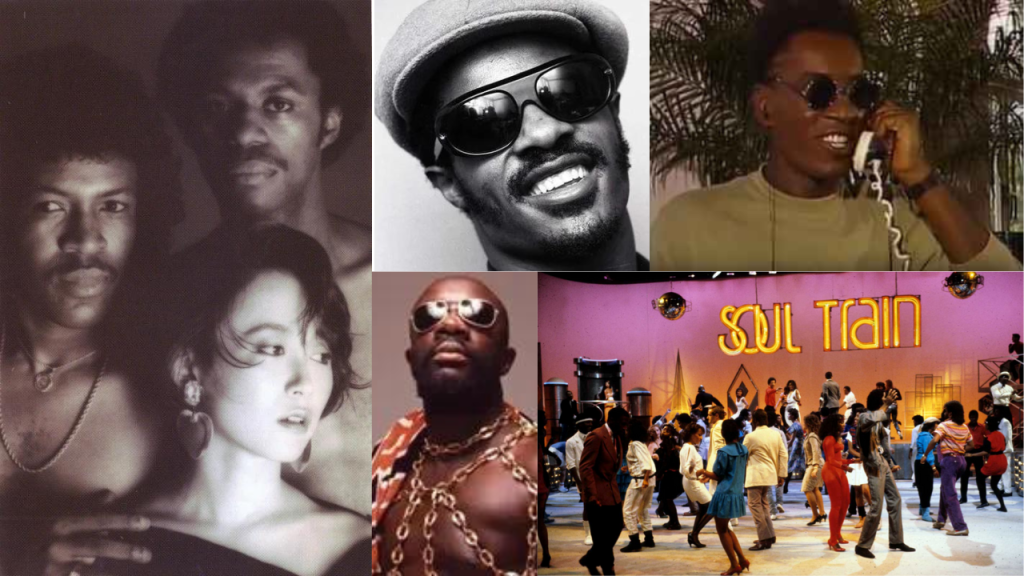
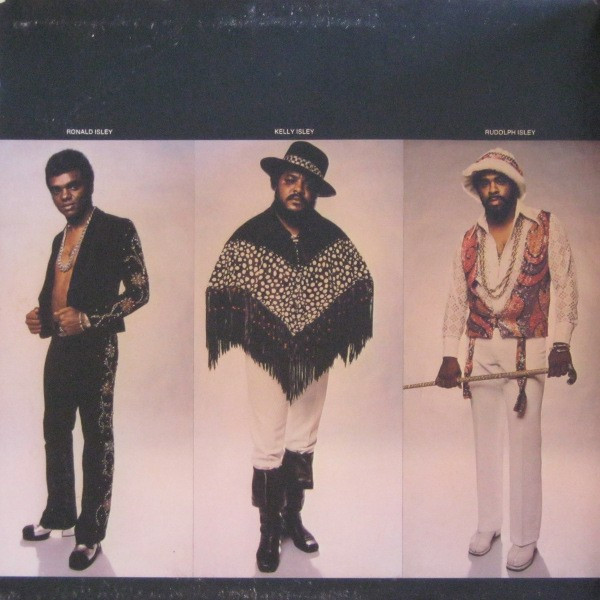
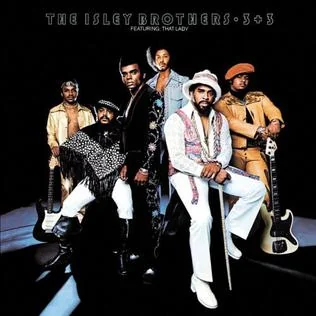
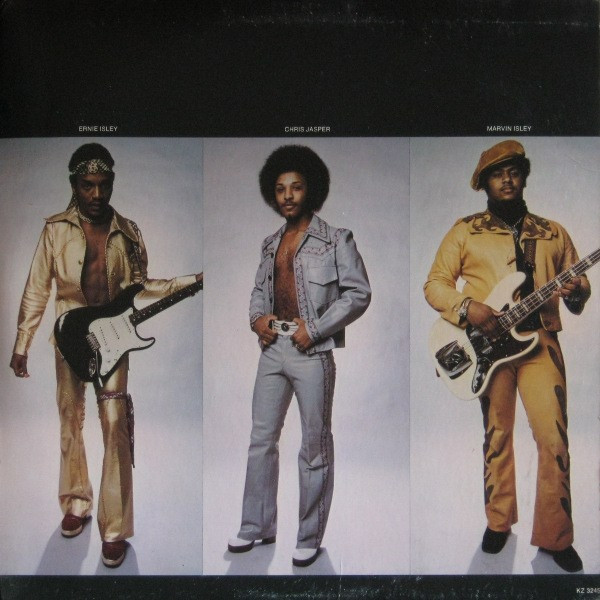
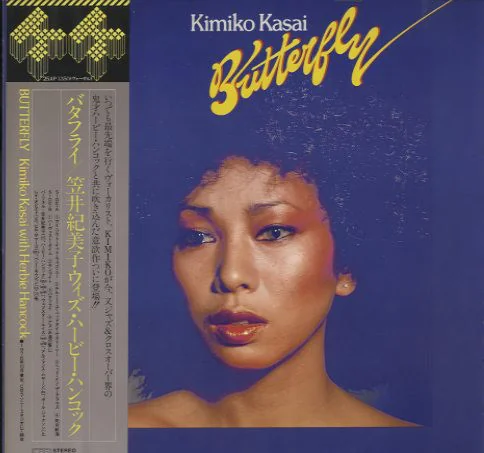
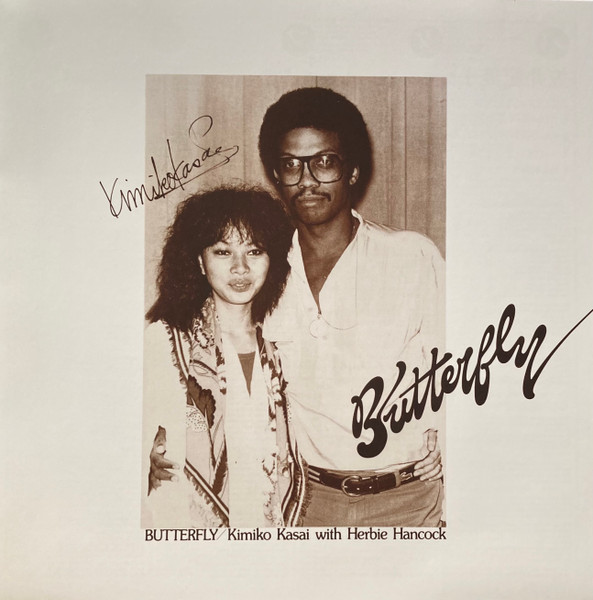
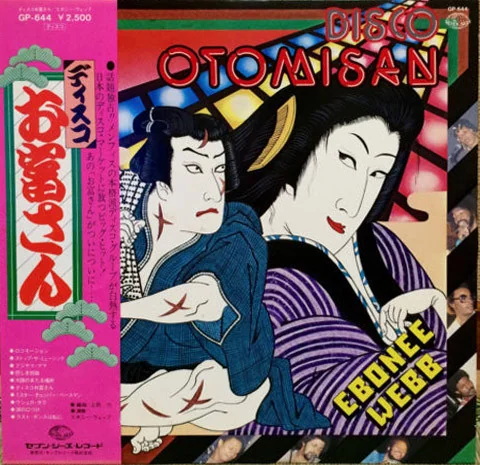
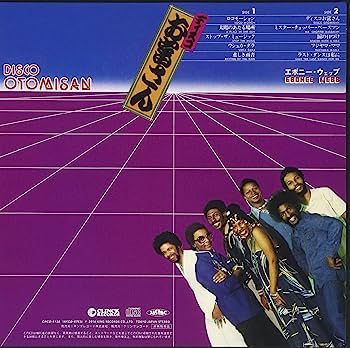
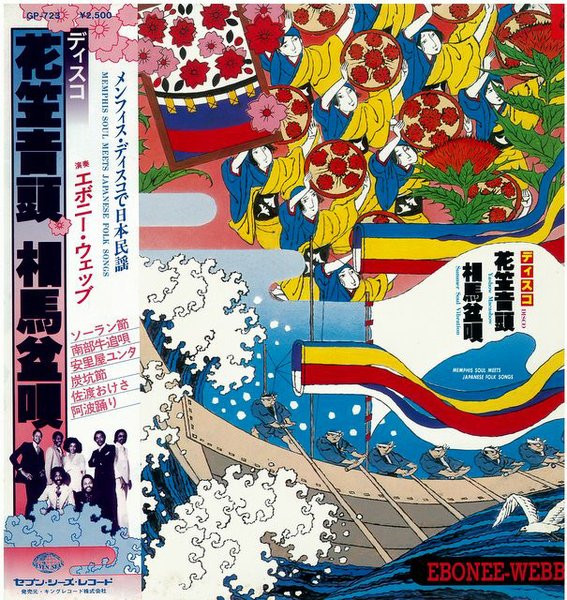
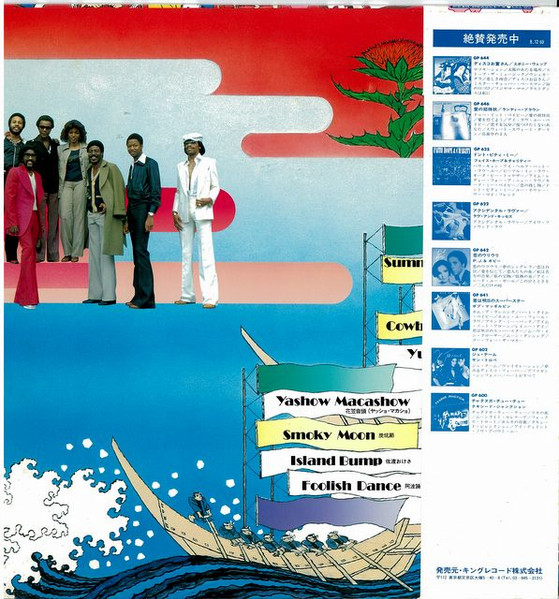

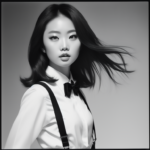
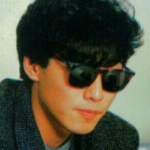

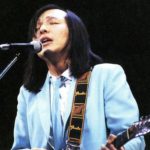
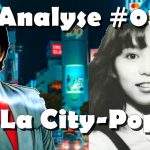

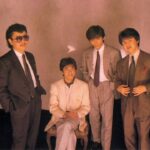
Honorable mention: Luther Vandross sang background for a couple of tracks on Epo’s second album “Goodies”, R&B Jazz singer Patrice Rushen (of Forget me not fame) and Chuck Rainey ( guitarist for Aretha Franklin and Quincy Jones) contributing Keyboard and Guitar on Masayoshi Takanaka’s album “An Insatiable High”, Greg Phillinganes (Keyboardist for Michael Jackson and Stevie Wonder) Playing Keyboard on Masayoshi Takanaka’s album “Brasilian Skies” and Minako Yoshida’s album “Let’s Do It”
Wow, thank you for all these informations ! 🙂